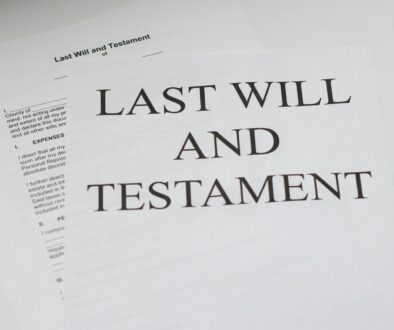Would you lose over £150million?
Bowcock Cuerden LLP, explores the potential loss of assets to individuals either during their lifetime or by their estate, as well as the options to be considered.
In January 2021, it was widely reported that Stefan Thomas, a computer programmer, was given 7002 bitcoins a decade ago as a reward for making a video to explain how cryptocurrencies work. The bitcoins are held on a secured hard drive. When he received them they were worth around $2 to $6 (£1 to £4) each. They are now worth in total around $220 million to $240 million, the equivalent of over £157 million to £172 million. The problem was that he lost his password to access the funds.
Bitcoin is a cryptocurrency (virtual currency) which began in 2009. You can purchase products online with bitcoins; it is a digital equivalent of cash but there is a high level of anonymity. Stefan Thomas is reported to have had 8 failed attempts inputting his password to access his bitcoin wallet in January, leaving only 2 remaining attempts, otherwise his wealth would be lost to him forever. It is reported that he has made “peace” with his loss.
Stefan Thomas is not the only person to have lost his password or access to bitcoins though. It is estimated that around 20% of the existing bitcoins appear to be in inaccessible or lost digital wallets. It is reported that in 2013 a Welsh IT worker, James Howell, threw out a hard drive holding 7,500 bitcoins, then worth around £4 million, but now worth over £179 million. He is said to have offered the local Council over £50 million to help him find it in the local dump!
The question therefore arises over security and whether passwords should be kept somewhere other than merely ‘in the brain’ of an individual. Relying solely on the brain of an individual has complications if that person loses mental capacity or dies without a back up plan. We are advised constantly by security experts not to write passwords down, not to use the same password and to frequently change our passwords. This helps prevent fraud and keeps your assets secure.
This does raise a number of concerns, as during an individual’s lifetime only those with legal authority to act on their behalf through a general Power of Attorney (limited to 12 months), an Enduring Power of Attorney or a registered Lasting Power of Attorney for financial decisions may lawfully access your finances in this way.
On death, only Executors or Administrators of an estate are authorised to deal with that estate. For most assets, only account, plan or policy numbers and the name of the organisation holding the assets would be needed. A search of the unclaimed Asset Register can also be made to find unknown assets belonging to an individual. Allowing someone to access your online accounts without correct legal authority can put that person at risk to claims against them if something goes wrong.
There are companies that provide secure online vault access which can store your passwords and link these to your trusted advisors or individuals. It is something to be considered in association with estate planning and the preparation or review of your Will. This would also allow password access to be stored for social media and Paypal type accounts, which can be difficult to close down without password information. The issue of gaming and gambling type accounts also arises. The real question will always be ‘who do you trust with your information’. As Bill Gates once said: “With great wealth comes great responsibility”.
Bowcock Cuerden LLP has an experienced team of Solicitors assisting in Estate administration, Trusts, Lasting Powers of Attorney, Court of Protection matters and preparation of Wills, including members of the Society of Trust and Estate Practitioners (STEP), Solicitors for the Elderly (SFE) and the Agricultural Law Association (ALA).
For more information on the issues addressed in this article, please contact us on 01270 611106 or email reception@bowcockcuerden.co.uk
This article is not intended to be comprehensive or to provide specific legal advice. It should not be relied upon in the absence of specific advice given in relation to particular circumstances.




